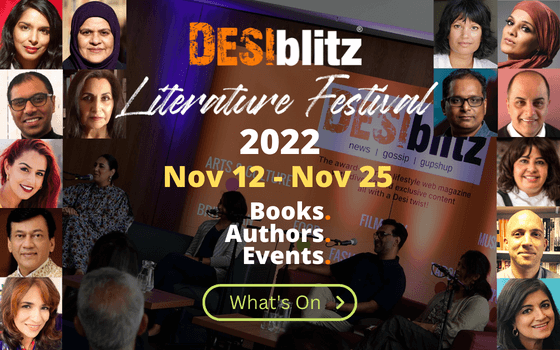Today (25 November) is the last chance to catch Birmingham’s fantastic Literature festival, the only one in the UK to celebrate British South Asian literary talent. Since 12 November, there have been dynamic events bringing together a range of critically acclaimed writers from the British South Asian diaspora for workshops, performances, and panel discussions.
Award-winning authors, journalists, directors, screenwriters and poets that have made an appearance have included Saima Mir, Romy Gill, Anita Sethi, Samir Bhamra, Sadia Azmat and Bali Rai, to name a few.

Ahead of the final day, we chat to Indian novelist Anita Nair, who also made an appearance at the festival. We discussed her writing, and how culture and heritage affects the way she writes.
Can you tell us about how you got into writing?
One of my earliest memories is of an evening scene in my home – my parents seated in armchairs reading, my brother lying on the sofa and reading, and me seated on a little chair looking at them and wondering what was so fascinating about books. I started reading very early and it was only a matter of time before I knew that writing is what I wanted to do. Create and tell stories.
What is your background and how does this affect your writing?
I worked in Advertising for almost a decade and what it has taught me more than anything else is know how to slip into the skin of my characters. So it allows me to bea little girl or an elderly woman or a young man with equal ease. I won’t say it happens effortlessly. There is a great deal of work involved in subjugating and burying who I am as a person before I can become the character and responding to situations as the character would and not as I as a person would. This is aided with research which again is an essential advertising tool.
You were born in Shoranur in the Indian state of Kerala, but you write in English. How do you navigate both cultures within your work?
All my fiction is built around a metaphor; it’s the first step towards creating a structure for the novel. Usually there is an idea that germinates in my head for a while and it is mostly abstract and devoid of any structure, plot or characters. However, when the right metaphor occurs to me everything fall into place.
The key here is that the metaphor must sit well with my characters whoare mostly drawn from small town or rural India. So the landscape and mindscape I delve into is the same as regional language writing. I am a great admirer of what is happening in the literary space occupied by writers writing in various Indian languages. The themes explored, the strength of the language and writerly insights have inspired me rather than influenced me to break barriers with how I write my books.
As for representing the struggles and conflicts of my characters, one needs to have an intimate understanding of a place and its customs as its people to be able to write about it with strength and conviction. As I have lived for decades in both Kerala, Tamilnadu and Karnataka, it has helped me internalize the place and traditions.
In an ever-globalised world, how important is it for individuals to express their identities that hold different cultures?
I am an Indian and it is the landscape and emotionalscape I know best and the culture that I grew up with. My country is who I am and I have always drawn from it again and again. I think it’s important for writers to be able to showcase their multi-layered identity as much ashelp the rest of the world understand it.
About Anita Nair
Anita Nair is a critically acclaimed and bestselling writer of nine novels and a short story collection. She is best known for her novels The Better Man (1999), Mistress (2005) and Lessons in Forgetting (2010). She has also published six books for children, three original Audio books, a collection of poems and a collection of essays. In addition, she has written two plays and the screenplay for the movie adaptation of her novel Lessons in Forgetting. Around the world, her books have been published in 31 languages.
For free tickets to the last DESIblitz Literature Festival event at 6pm tonight with Imtiaz Dharker, hosted by Tony Adams, please visit here.
Check out more Entertainment Now lifestyle news, reviews and interviews here.






